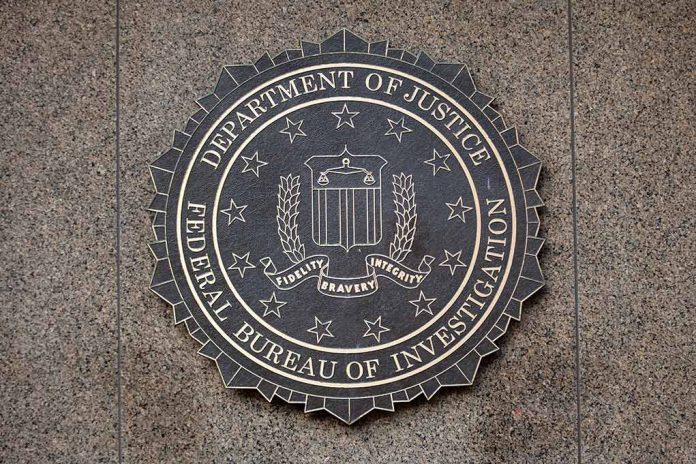
The FBI undergoes a major leadership shake-up as top executives face forced resignations or demotions under the Trump administration’s restructuring efforts.
Key Takeaways
- Several high-ranking FBI officials, including executive assistant directors, have been told to resign, retire, or face demotion.
- The restructuring affects career civil servants who typically remain outside of political influence.
- This move is part of a broader pattern of administrative changes in federal agencies under the Trump administration.
- The restructuring has caused significant disruption and anger within the FBI.
- Concerns have been raised about potential political motivations behind these personnel changes.
Major Leadership Changes at the FBI
The Federal Bureau of Investigation (FBI) is experiencing a significant restructuring under the Trump administration, with several top executives being urged to leave their positions or face possible demotion. This shake-up affects approximately half a dozen “executive assistant directors” who oversee critical areas such as criminal, national security, and cyber investigations. These officials, who are career civil servants, cannot be fired without cause, making the current situation particularly contentious.
The restructuring initiative, initially set in motion by former FBI Director Christopher Wray, has caused considerable unrest among the bureau’s staff. A current FBI official described the move as “hugely disruptive,” highlighting the anger felt by employees who are not considered political figures but are now caught in what appears to be a politically-driven reorganization.
Several top FBI executives promoted by Christopher Wray were told today to retire or resign, or they would he demoted or reassigned if they don't leave. This includes about a half dozen "executive assistant directors," who are some of the bureaus top managers.
They are career… pic.twitter.com/nGkBGCtlFv
— Patriot Lady (@angelwoman501) January 31, 2025
Broader Pattern of Administrative Changes
The FBI restructuring is not an isolated incident but part of a larger wave of administrative changes occurring across federal entities under President Trump’s leadership. Recently, Trump fired 18 inspectors general from various departments, including State, Defense, Labor, and Health and Human Services. When questioned about these terminations, Trump justified the actions by stating:
This statement has raised concerns about the potential political motivations behind these personnel changes, particularly as they affect traditionally non-partisan roles within the government.
Concerns Over Political Influence
The restructuring of the FBI and other federal agencies has sparked alarm over potential political influences in traditionally non-partisan institutions. Critics argue that these changes may be measures of retribution against specific agency officials who have challenged or investigated the administration’s conduct. The Trump administration has also dismissed career attorneys at the Justice Department involved in prosecuting the president in the past, further fueling concerns about politically motivated personnel decisions.
Future Leadership of the FBI
As the FBI undergoes these significant changes, attention has turned to its future leadership. President Trump has nominated Kash Patel to lead the FBI. During his Senate confirmation hearing, Patel stated that the FBI would not engage in retributive actions if he were confirmed. However, given the current restructuring and the broader pattern of administrative changes, many remain skeptical about the future direction and independence of the bureau.
The ongoing restructuring of the FBI and other federal agencies continues to be a topic of intense debate and scrutiny. As the situation unfolds, many are closely watching to see how these changes will impact the effectiveness, morale, and perceived independence of these crucial institutions in the long term.
Sources:
Several top FBI officials are told to resign or face demotion as Trump continues federal purge







